The Netflix Violent Crime Thriller Couldn’t Be Made Today
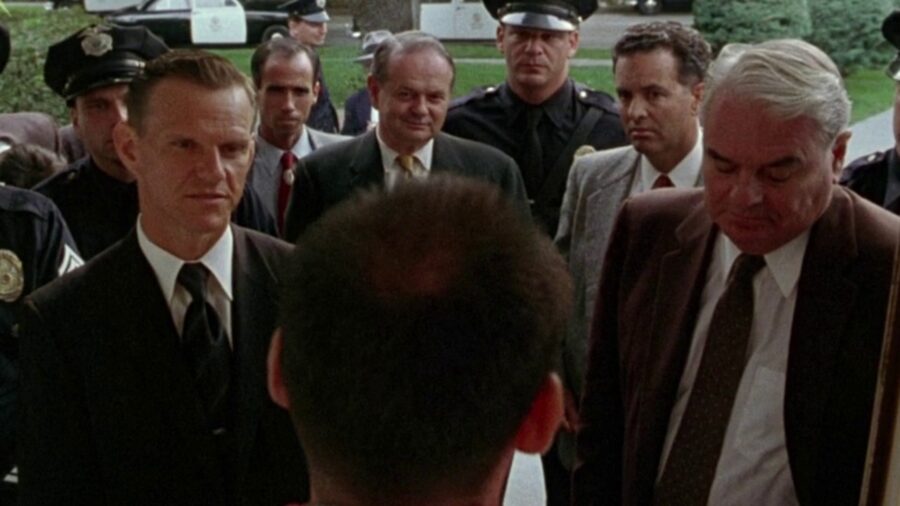
Directed by the late Curtis Hanson (8 Mile), the 1997 neo-noir crime thriller L.A. Confidential is one of the best films you could possibly watch on Netflix. In spite of a white hot box office run and the feature proving to be a favorite among all the critics, two things about L.A. Confidential would likely stop it from being made today; or at least, it couldn’t be made with the same cast and story. First, it’s likely a lot of audience members would take issue with the depiction of characters of color in the flick, and second and most obviously, there’s the presence of the actor who, in 1997, was the biggest name in the cast — Kevin Spacey.
The Story
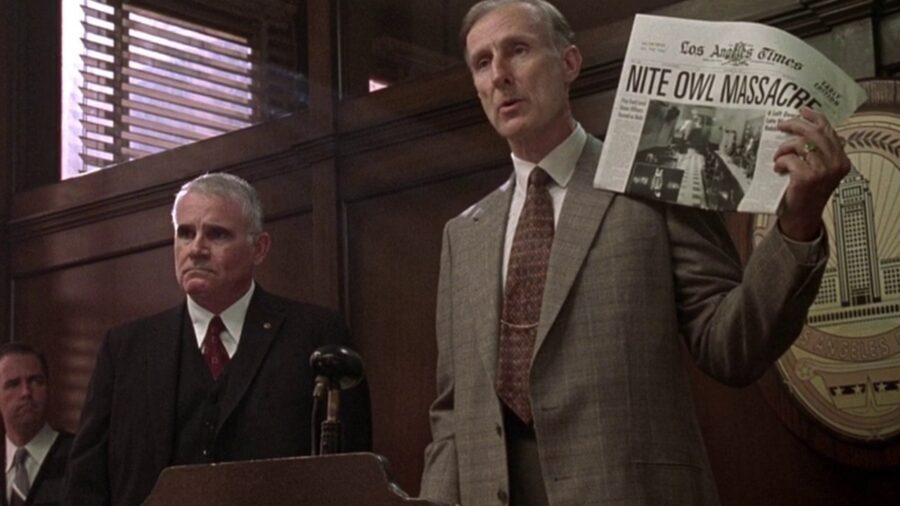
The central mystery of L.A. Confidential is an inexplicably coordinated series of executions in the Nite Owl coffee shop — dubbed the “Nite Owl Massacre” by the press — in which both patrons and employees were forced into the mens room where they were shot. Among the victims is former LAPD Detective Dick Stensland (Graham Beckel) who had just been forced into retirement. Investigating the massacre leads the heroes down unexpected paths toward government corruption, the elite escort service Fleur-de-Lis, and a love triangle revolving around the high end sex worker Lynn Bracken (Kim Basinger).
Trio Of Flawed Heroes
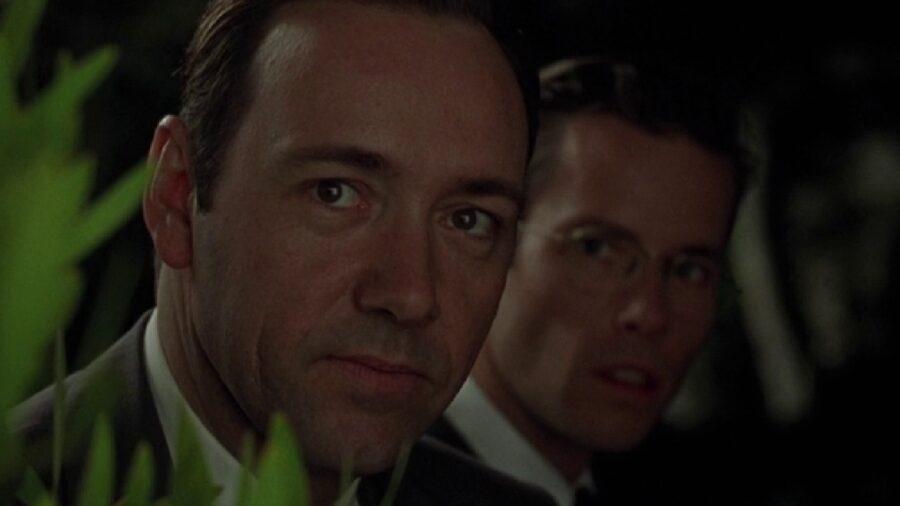
While only one of them is officially assigned to the case, three detectives investigate the Nite Owl Massacre in L.A. Confidential, and none of them are exactly white knights in shining armor. There’s the unstable Bud White (Russell Crowe) who always seems just a few seconds away from knocking someone out. On the other side of the spectrum is the squeaky clean Ed Exley (Guy Pearce), who is much cleverer than Bud with the ambitions of a Roosevelt. And finally there’s Jack Vincennes (Kevin Spacey), a veteran detective who initially cares solely about his consulting gig on the police drama Badge of Honor, and the tiny bit of celebrity it affords him.
An All-Star Cast
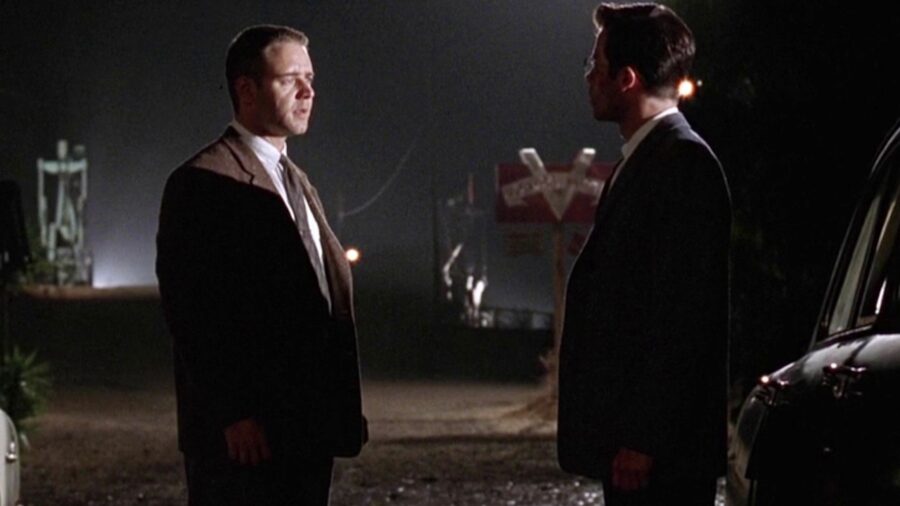
One of the surprising things about L.A. Confidential is that at the time of its release, two of the actors with the most time on screen — Crowe and Pearce — were relative unknowns. Each was three years away from the respective films that most fans would know them for: Gladiator and Memento both hit theaters in 2000. When they were on screen looking for the Nite Owl murderers, their names were considerably less well known than those of some of their colleagues with less screen time; including Spacey, Basinger, and Danny Devito who played the shamelessly parasitic tabloid publisher Sid Hudgens.
Spacey
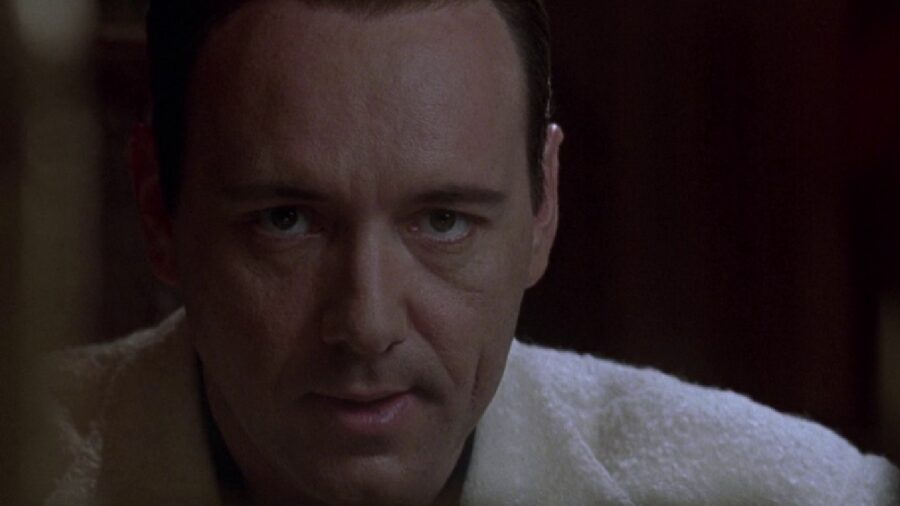
When he appeared in L.A. Confidential, Kevin Spacey was a year out from his first Oscar win for The Usual Suspects. It was two decades before Star Trek actor Anthony Rapp would make sexual misconduct allegations against Spacey; allegations which would soon be followed by more from other men.
Spacey has so far failed to be found guilty in any of the criminal cases brought against him, but the court of public opinion has not been won over. To be fair to that public, whether he is innocent or guilty of any of the allegations made against him, Spacey’s increasingly bizarre behavior — such as appearing on The Tucker Carlson Interview as his House of Cards character Frank Underwood — hasn’t done him any favors.
In the wake of #MeToo, it often feels impossible to watch a show or film with an accused celebrity like Spacey and avoid looking at the media through different eyes. This is particularly true of Spacey and L.A. Confidential, considering one of the first things we see his character do is purposely net a pair of celebrities in a sex/drug scandal in order to make some extra cash and get his picture in Sid Hudgens’ Hush-Hush.
Race In L.A. Confidential
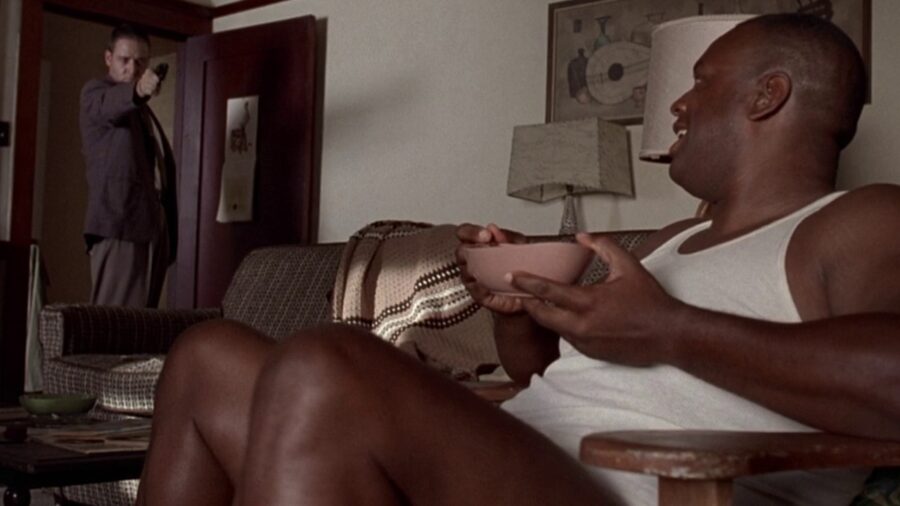
It’s difficult to imagine that a number of scenes in L.A. Confidential could be directed and edited the same if the film were made today because of the question of how characters of color are treated. The most glaring example is that a group of young Black men are initially accused of the Nite Owl massacre, every one of them is abused by the LAPD, at least one is murdered by Bud White, and every single one of them is dead before the heroes are through with them. While innocent of the massacre, they all wind up being guilty of something absolutely horrific and in the end you’re not meant to feel much sympathy for them.
On one hand you could argue the depiction of the Black men is racist because even though they prove innocent of the massacre, they’re guilty of something equally despicable. On the other hand, you could also argue that L.A. Confidential is a movie about a town where absolutely everyone is guilty of something, and that the film is merely acknowledging the racism that already exists. Regardless of either argument, there’s the simple fact that as far as the main cast of is concerned, there isn’t a non-white face to be seen.
There is also “Bloody Christmas,” a scene in which a group of Mexicans are rounded up and blamed for injuring a police officer, and the mostly drunk cops corner them and beat them up. In a way, this scene could potentially face even more scrutiny than the interrogations, and later the killings, of the framed Black men.
In the latter case, L.A. Confidential treats the violence done to the Black men as something monstrous — for example, Bud White’s murder of a man who moments before is eating cereal and watching cartoons is one of the toughest cinematic deaths you’ll ever watch. In contrast, the beatings of the Mexican men are treated almost like comedy, even slapstick. Kevin Spacey‘s Jack Vincennes gets in on the beatings not because he cares about the crimes they’re accused of, but because one of the beaten men is shoved into him and gets blood on his suit. You half expect the thing to devolve into one of those Benny Hill Show chase scenes.
A Masterful Work Of Cinema
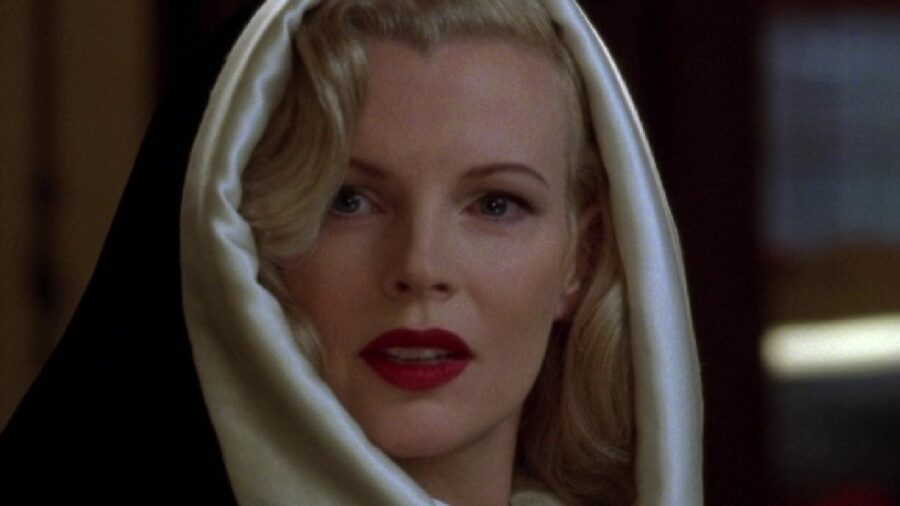
If you can look past its potential flaws in the handling of race, and if you can stomach watching a movie in which Kevin Spacey gets top billing, L.A. Confidential delivers two hours of amazing storytelling. And I’m not the only one who thinks so; the thriller was nominated for nine Oscars and brought home two — Kim Basinger was named Best Supporting Actress, while Brian Helgeland and Curtis Hanson took home trophies for Best Adapted Screenplay. While it was up for Best Picture, L.A. Confidential had the bad luck to be nominated the same year as Titanic, which took home every trophy it could gets its submerged hands on.












